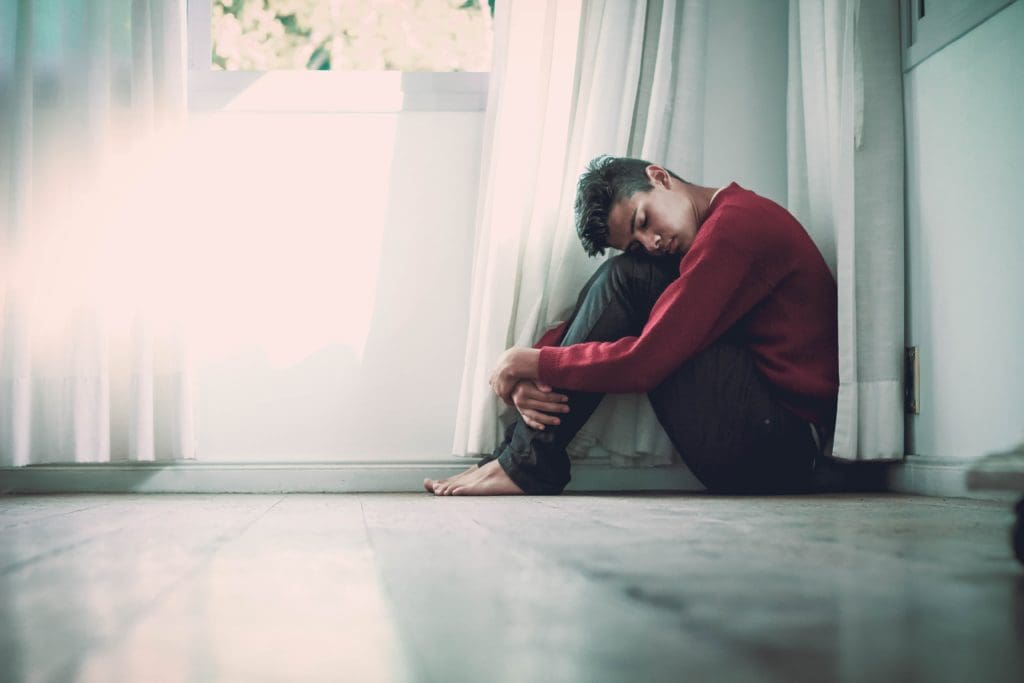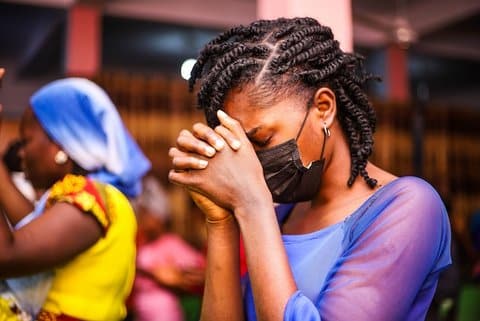
03 May Dealing With Depression at a Cultural Crossroads

By Christopher Keopaseuth and Hannah Mendoza | Photo by Fernando @cferdo on Unsplash
Some people never realize when someone is going through mental health issues such as depression. And sometimes, parents refuse to recognize the problem, even when their children come to them for help. This may be because of the way some cultures view mental illness. In Latino culture, for one, there is less communication on the topic.
“I did talk to my parents about my mental health. First time I told my mom, she told me that it’s probably just me being sad and that I’d get over it,” said Danae Escalante, a student at Richmond High. Her mother was raised in Mexico “where they don’t really believe in mental illnesses.” Danae continued, “This was in seventh grade, so I discarded it and tried to get over it, but I never really did.”
Over time, things only got worse for Danae. “I tried to get over it like my mom had said before, but there was a point in which my grades were horrible because of it and my personality completely changed,” she said. So she decided to open up to her dad this time. “He was much more understanding and actually wanted me to get help,” she said. “That’s when I was diagnosed with severe depression and I began to get help and it’s been working slowly but surely.”
According to the National Alliance on Mental Illness, a national grassroots advocacy group, the Latino community largely does not talk about mental illness, or if they do, they say someone is “locos.” Our community lacks the proper information about mental illness. That may be because parents haven’t ever had a conversation on the subject. Or they view a mental illness as being “crazy.” Or they don’t believe that mental illness is even a thing.
“When I talked to my parents about mental health, they tried to tell me how to think and how to feel about certain things,” said Jose Buenrostro, a student at Richmond High. “They did that so I wouldn’t hurt or be in pain, but they didn’t understand that my mind was already damaged. I felt almost hopeless.” He added that his parents not listening made him feel like “it wasn’t even worth telling them about my issues or problems in my life.”
For many young Latinos, there is a disconnect between how they and their parents view mental illness. My parents “are still in the rancho way of thinking and they haven’t adapted to today’s thinking, so I disregard it at this point,” Jose said. “They think that it can be solved with one conversation. It’s not that simple. The pain goes a lot deeper than that, but they don’t see that, so to them it’s not real.”
According to the National Institute of Mental Health, an estimated 3.1 million adolescents aged 12 to 17 in the United States had at least one major depression episode in 2016. This number represented 12.8% of the U.S. population in that age group at the time. The prevalence of major depressive episode was reportedly higher among adolescent females (19.4%) than among males (6.4%). It is possible, though, that may be because women and girls are often more likely to report feelings of depression than men and boys are.
It can be hard for people to do day-to-day activities while they are trying to deal with their own battles.
“I’ve never talked to my parents about my mental health. Their way of thinking is ‘old school’ and they would never understand,” said Angel Bejines, a senior at Richmond High. With depression, “you start losing motivation to do anything. You stop eating. What used to make you happy doesn’t make you happy anymore. You shut yourself [away] from everyone else.” Or to make matters worse, you might “start doing drugs to cope and hide the fact you’re sad and to make everyone think you’re okay” even though “deep down inside you’re just feeling really bad about yourself and don’t know what to do.”
It’s understandable how some people can feel helpless when it comes to trying to help. “I don’t have depression myself but I know people who do,” said Dianna Millan, a senior at Richmond High. “I know it affects them no matter the situation, and sometimes they try to hide it, but when I ask them, ‘Are you okay?’ they’ll just respond ‘I’m fine.’” But I know “in my mind they’re not fine.”
If you’re feeling depressed or dealing with any other mental health issue, it might seem like it isn’t worth talking about. You might worry that your parents too won’t understand. They’ll think it’s just a phase. You’ll get over it. As scary as it is, though, this is your health, and it is worth starting a conversation with those you love.
A version of this story first appeared in the CC Spin Newspaper.






No Comments